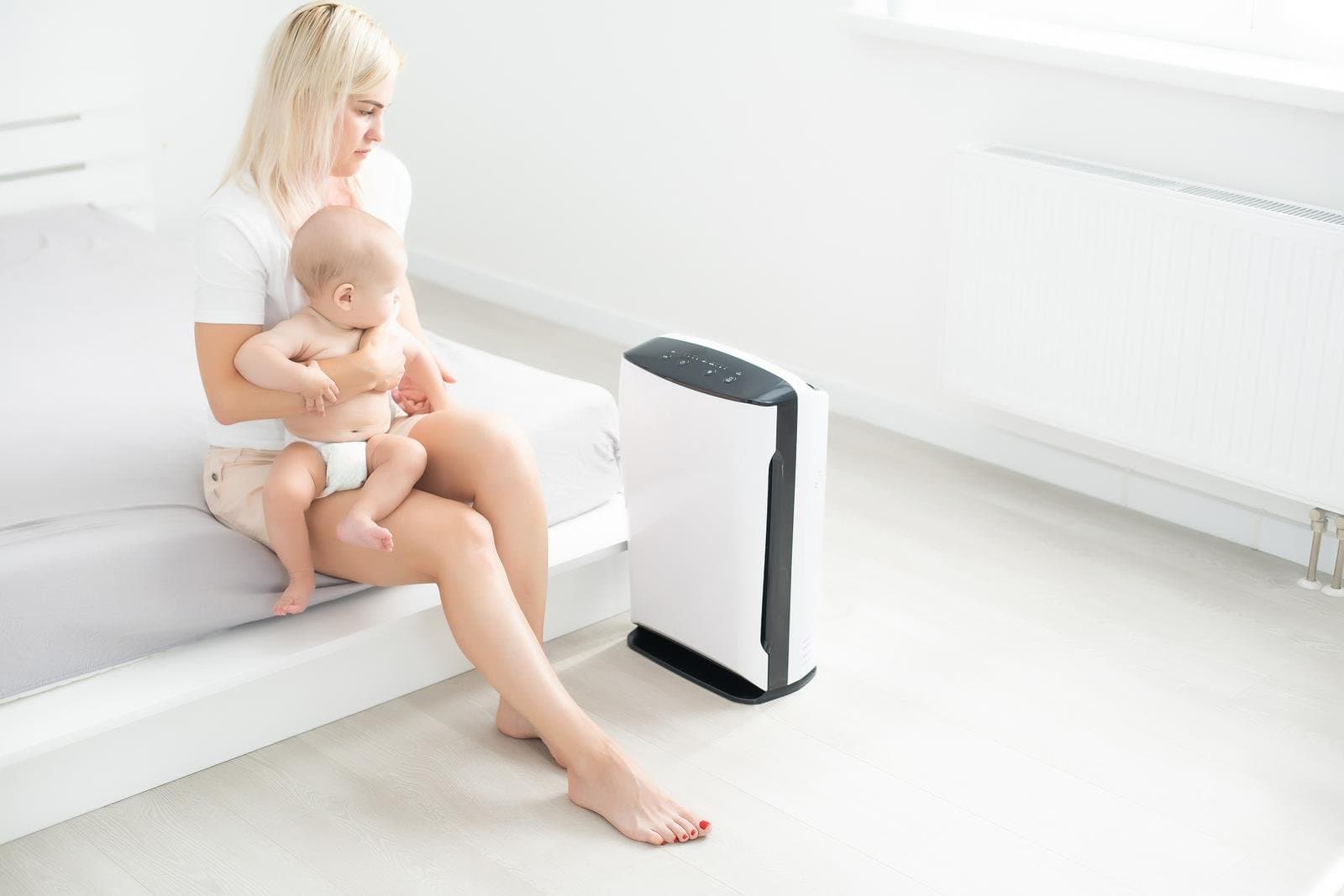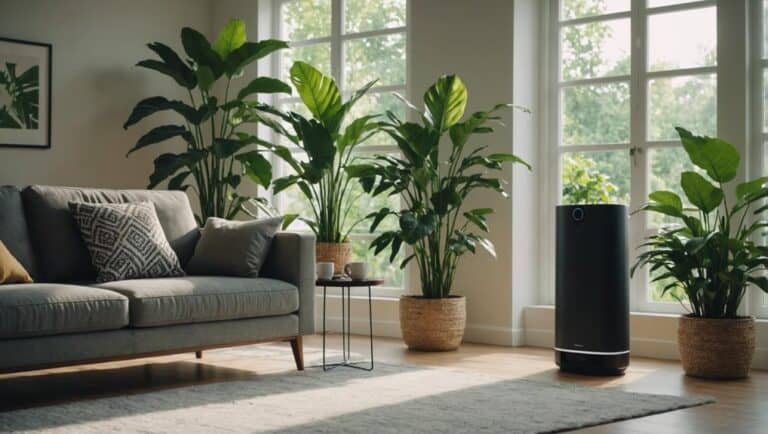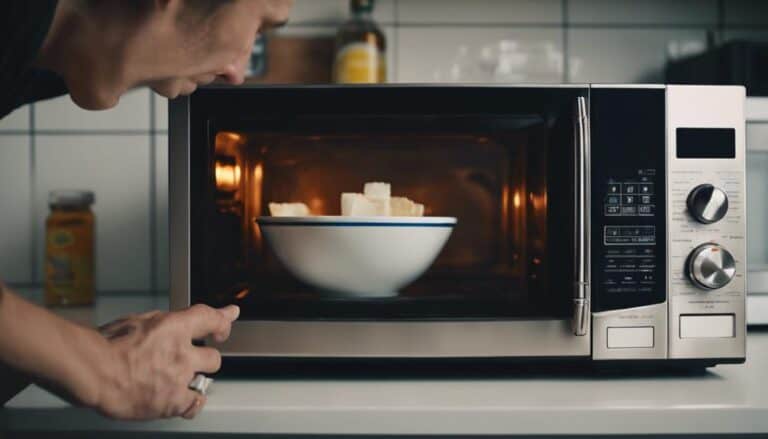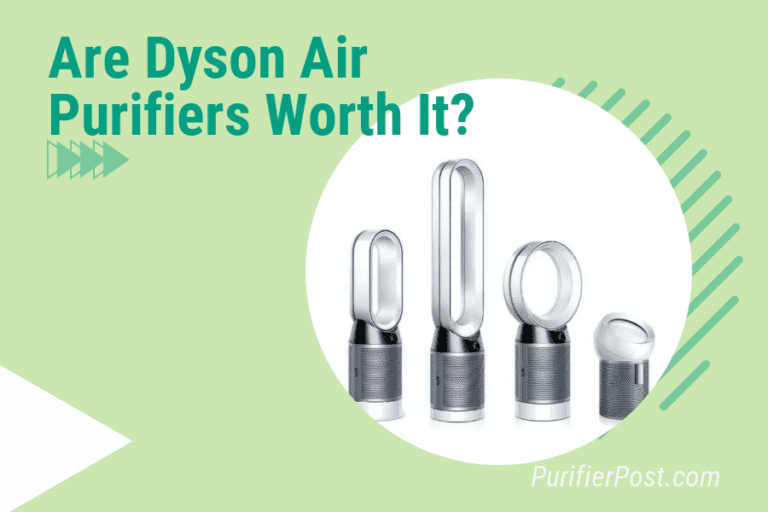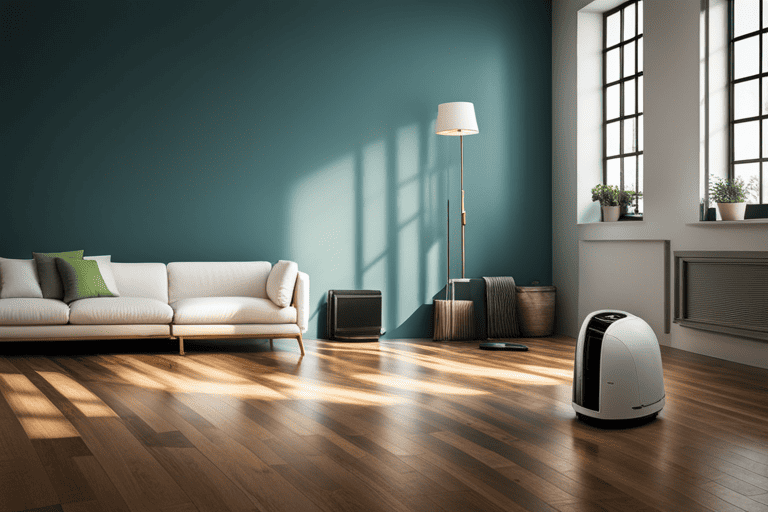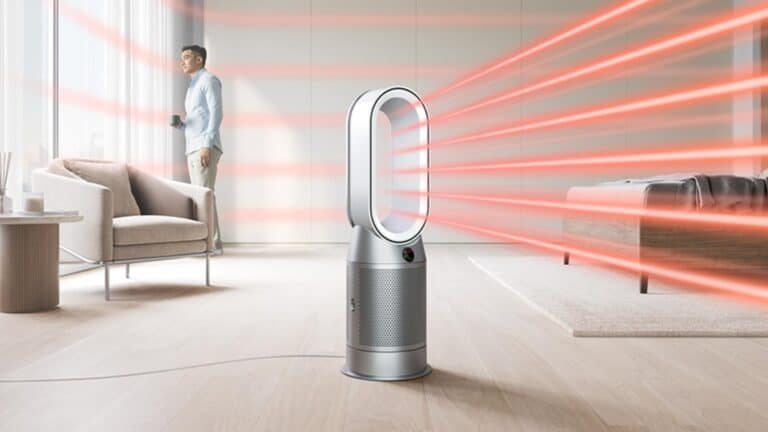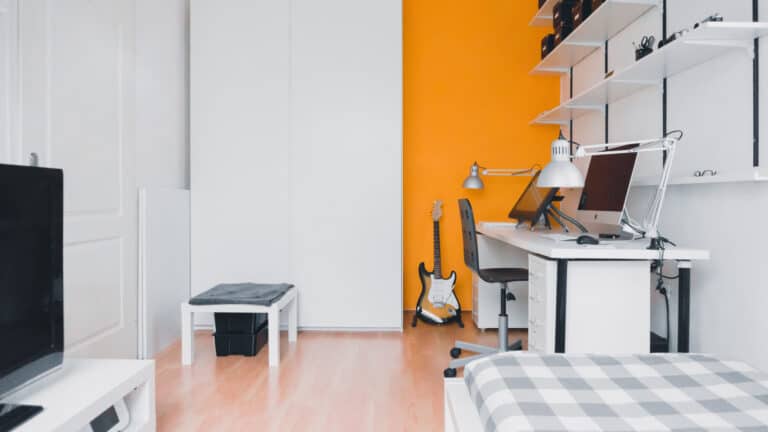Examining the Safety of Dyson Air Purifiers for Babies: Expert Insights and Recommendations
In recent years, there has been a growing concern among parents about the air quality in their homes and its potential impact on their babies’ health. To address this issue, renowned appliance manufacturer Dyson has introduced a range of air purifiers specifically designed for nurseries and baby rooms.
However, with safety being of utmost importance when it comes to our little ones, many parents are left wondering if these Dyson air purifiers are truly safe for their babies. In this comprehensive article, we will examine the safety features and design elements of Dyson air purifiers, along with expert insights from leading pediatricians and specialists in indoor air quality.
Furthermore, we will provide valuable recommendations to help parents make informed decisions regarding the use of Dyson air purifiers in creating a clean and healthy environment for their precious bundles of joy. Stay tuned as we delve deep into the world of Dyson air purifiers for babies!
The Importance of Air Purifiers in Baby Rooms
Air purifiers play a crucial role in maintaining a healthy environment for babies.
- Babies have delicate respiratory systems that are more susceptible to pollutants, allergens, and irritants present in the air.
- An air purifier helps to remove these contaminants from the baby’s room, reducing the risk of respiratory issues such as asthma and allergies.
- Clean indoor air is especially vital during the first few months when babies spend most of their time sleeping and breathing close to surfaces like mattresses and carpets that can easily accumulate dust mites and other harmful particles.
By investing in an air purifier specifically designed for baby rooms, parents can provide their little ones with a safe breathing space. Here’s why it matters:
- Removal of Allergens: Airborne allergens such as pollen, pet dander, and dust mites are common triggers for allergic reactions among infants. Having an efficient air purifier eliminates these substances from the baby’s room, minimizing discomfort or potential health issues caused by sensitivities.
- Cleaner Sleep Environment: Babies need uninterrupted sleep to grow and develop properly. A high-quality air purifier reduces airborne particles that may disrupt sleep quality due to congestion or irritation.
- Reduced Asthma Risk: Research suggests that exposure to indoor pollutants increases the likelihood of developing asthma later in life. By actively filtering out harmful irritants through continuous purification cycles, an air purifier helps create a cleaner environment where babies can breathe easy without exacerbating potential respiratory conditions.
In conclusion, incorporating an appropriate Dyson air purifier into your baby’s room promotes better indoor air quality which ultimately safeguards their overall health and well-being
Examining the Safety Features of Dyson Air Purifiers
Safety Features of Dyson Air Purifiers
Dyson air purifiers are equipped with several safety features to ensure the well-being of babies.
- Childproof design: The units have a childproof lock, preventing curious little hands from tampering with the settings or accessing any potentially hazardous components.
- Automatic shutoff: In case of overheating or malfunction, the air purifier automatically shuts off to prevent any fire hazards and notify users that attention is needed.
- Low-noise operation: With their innovative airflow designs, these devices operate quietly, eliminating the risk of disturbing baby’s sleep patterns.
These safety features provide peace of mind for parents who want clean and pure air for their infants without compromising on safety.
Understanding the Potential Risks of Dyson Air Purifiers for Babies
When considering the safety of Dyson air purifiers for babies, it is important to be aware of potential risks that may accompany their use. While these devices are designed to improve indoor air quality, there are several factors that parents should consider before introducing them into a baby’s environment.
- Noise levels: Dyson air purifiers can produce noise while in operation, which may disturb a baby’s sleep or cause agitation. Careful consideration should be given to where the device will be placed and whether its noise level poses a risk to the infant’s wellbeing.
- Air flow: It is crucial to ensure that an air purifier does not blow directly onto a baby, as it can potentially cause discomfort or lead to respiratory issues such as dryness or irritation in sensitive nasal passages.
- Filter replacement: Regular filter replacements are necessary for optimal performance and effectiveness of Dyson air purifiers. Parents must adhere strictly to recommended maintenance schedules and keep up with filter changes to prevent contaminated filters from releasing harmful substances back into the room.
By being informed about these potential risks associated with Dyson air purifiers and taking appropriate precautions, parents can make educated decisions regarding their use in creating safer environments for their babies’ well-being.
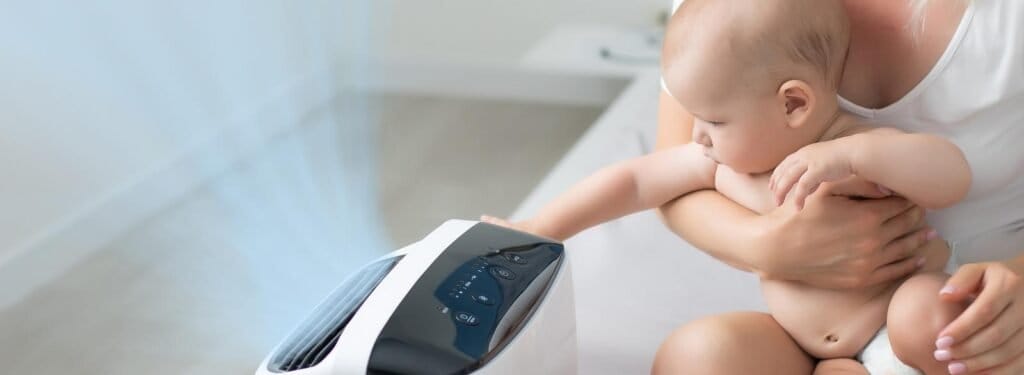
Expert Insights on the Effectiveness of Dyson Air Purifiers for Baby Rooms
When it comes to the effectiveness of Dyson air purifiers for baby rooms, experts generally agree that these devices can help improve indoor air quality and create a healthier environment for infants.
- Powerful filtration: Dyson air purifiers are equipped with advanced filtration systems that can capture small particles, including allergens, bacteria, and pollutants. This feature is particularly beneficial in baby rooms where clean air is essential for the respiratory health of young children.
- Efficient airflow: Experts highlight that Dyson air purifiers have strong airflow capabilities, which allow them to circulate and filter the air in larger areas effectively. This is crucial in maintaining consistent air quality throughout a baby’s room.
- Quiet operation: Another important aspect mentioned by experts is that Dyson air purifiers operate quietly while providing efficient purification performance. This ensures minimal disruptions during nap times or nighttime sleep.
Overall, experts find that using a Dyson air purifier in a baby room can be an effective strategy to reduce airborne pollutants and improve indoor air quality for newborns and young children alike. However, it’s always recommended to consult with a pediatrician or healthcare professional regarding specific concerns or recommendations for your individual child’s needs.
Recommendations for Using Dyson Air Purifiers Safely in Nurseries
- Keep the air purifier at a safe distance: Place the Dyson Air Purifier at least six feet away from your baby’s crib or play area. This will help to minimize direct exposure to the purifying airflow while still ensuring effective purification.
- Use appropriate fan settings: Adjust the fan speed of the air purifier to a low or medium setting, especially when your baby is sleeping. High-speed settings may create excessive noise and disrupt their sleep patterns.
- Regularly clean and maintain the device: Follow Dyson’s recommended cleaning instructions to ensure optimal performance of the air purifier. Regularly replacing filters as instructed will also help maintain clean indoor air quality and reduce any potential safety risks associated with accumulated dirt or allergens.
- Observe for any adverse reactions: Keep an eye out for any unusual symptoms or allergic reactions that your baby may experience while using the air purifier, such as difficulty breathing, skin rashes, watery eyes, or persistent coughing. If you notice such symptoms, consult with a healthcare professional who can further assess if it is related to using the device.
Conclusion: Making an Informed Decision for Your Baby’s Health
After examining the safety of Dyson air purifiers for babies, it is clear that these devices can offer significant benefits in improving indoor air quality. Experts agree that reducing exposure to common pollutants, such as dust and allergens, can have a positive impact on a baby’s respiratory health.
However, it is important to note that no single solution can guarantee complete protection against all airborne contaminants. While Dyson air purifiers are designed with advanced filtration systems and have been proven effective in capturing ultrafine particles, they should not be relied upon solely to create a healthy environment for your baby.
When considering whether or not to invest in a Dyson air purifier for your baby’s nursery, it is advisable to consult with pediatricians or other healthcare professionals who are knowledgeable about your child’s specific needs and any existing respiratory conditions they may have. Additionally, evaluating the overall air quality in your home and implementing other strategies like proper ventilation and regular cleaning routines will also contribute to creating a safe space for your little one.
